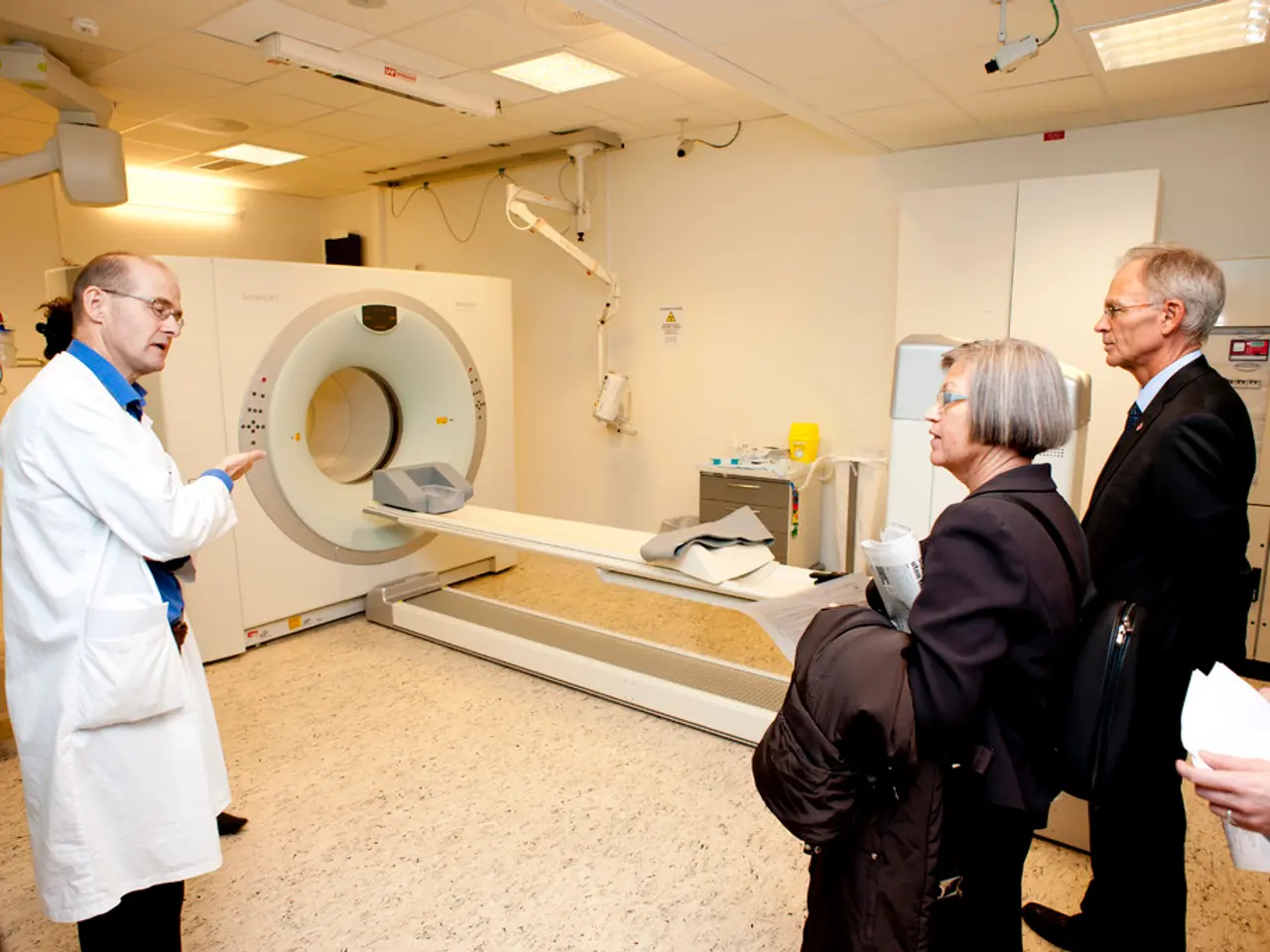Requirement for Advance Payments from Patients as Contributions Rise Among Employers - Rising Employer Contributions to Spur Patient Transitions
In the heart of Germany, a political debate about social insurance reforms is gaining momentum. The rising costs of social contributions, currently at 40%, have sparked concerns among employers and policy-makers alike. Volker Schmidt, CEO of Niedersachsenmetall, has been at the forefront of these discussions, criticising unnecessary services settled through health insurance funds that amount to a staggering 10 billion euros annually.
According to Schmidt, insured patients are required to pay doctor's bills upfront and then apply for reimbursement. This practice, he argues, contributes to a 0.6 point increase in contribution rates due to insurance-irrelevant services.
By 2027, social contributions could reach 45%, and by 2030, they could potentially reach 50%. Such a rise, Schmidt notes, would have a significant impact on employers, surpassing the effects of wage agreements.
The proposed reforms, however, have been met with resistance from social and medical associations, who deem them unfair. CDU general secretary Carsten Linnemann and Federal Chancellor Friedrich Merz, on the other hand, have spoken of reform needs, with Merz announcing "painful cuts" as part of his reforms.
Peter McDonald, the head of social insurance, has demanded higher co-payments and increased cost responsibility from insured persons. Steffen Kampeter, employers' president, has suggested an attendance fee as a potential solution.
Schmidt, however, proposes a different approach. He calls for more cost transparency, suggesting that insured individuals should be aware of the cost of doctor's visits and medications. He further advocates for these costs to be taken over by the federal budget in the future.
The high number of doctor's visits in Germany, averaging ten per capita per year, is a point of concern for Schmidt. He believes that this change would create cost awareness in the health system, which is currently lacking.
The term "fly's fart," used by Schmidt to describe the impact of rising social insurance contributions, caused controversy in 2018 when it was used by Alexander Gauland to trivialize the Nazi era. Despite this, Schmidt defends his use of the expression, stating that he had been using it long before Gauland.
In conclusion, the debate about social insurance reforms in Germany is intense and complex. With rising contributions and the need for reform, it is a topic that is likely to dominate the political landscape in the coming years.
Read also:
- Peptide YY (PYY): Exploring its Role in Appetite Suppression, Intestinal Health, and Cognitive Links
- Toddler Health: Rotavirus Signs, Origins, and Potential Complications
- Digestive issues and heart discomfort: Root causes and associated health conditions
- House Infernos: Deadly Hazards Surpassing the Flames








